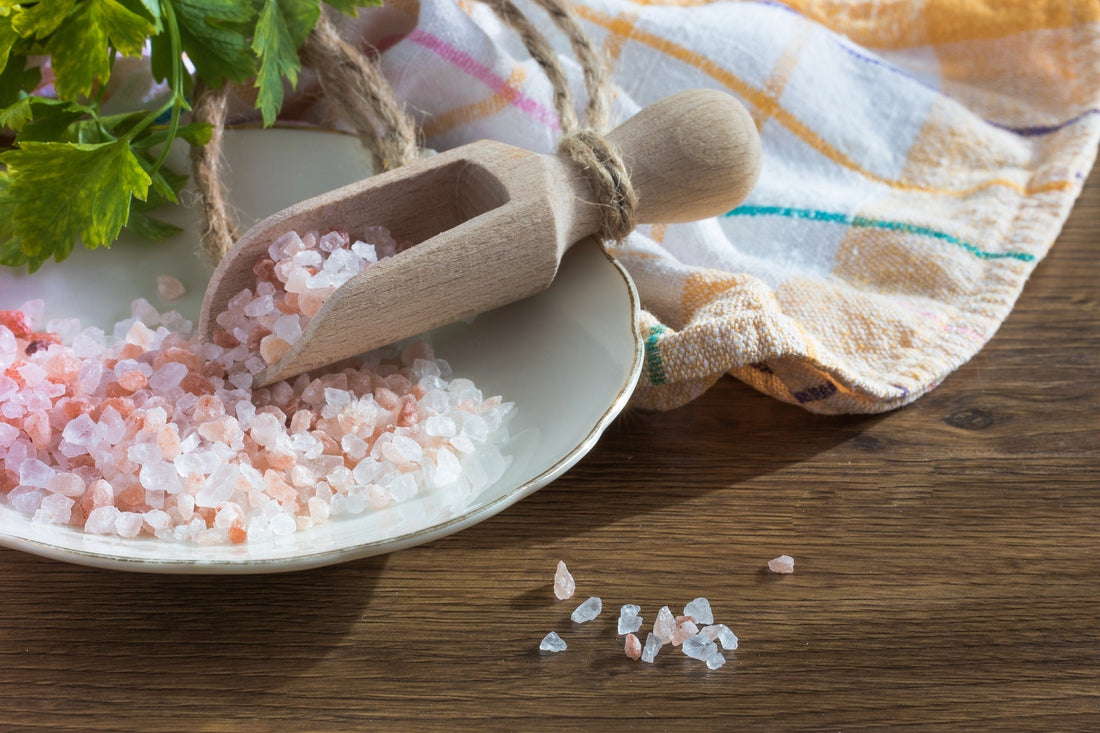
We think salt is one of the most important ingredients in every kitchen. No matter what you’re cooking or baking, a pinch of salt will always give your dish a little extra oomph. If you value salt as much as we do, then it’s worth investing in a quality Salt and Pepper Grinders. Find one that allows you go from hunks of flakey salt to an effortlessly fine grind with just a quick twist.
There are countless varieties of salt in the world. From table salt to truffle salt, it’s not always easy knowing what each one is and whether it’s good for you.
One of the most interesting and perplexing salts out there is Chinen salt. Attributed with various unconfirmed health-boosting properties and often mistaken for Himalayan salt, getting your head around Chinen salt can be a little tricky.
But don’t worry, here at Cole & Mason we like to think that we know a thing or two about salt so if you’re wondering what Chinen salt is and whether it’s good for you then you’re in the right place. Read on to learn all about it…

What is Chinen Salt?
Chinen salt is a salt found in the Himalayas which contains a large amount of the medicinal herb called berberine, a main component of coptis chinensis - which is where Chinen salt gets its name. It also contains iron, monosodium glutamate, sodium chloride, and sodium nitrate.
Just like other salts, it can be used in cooking. It has quite a strong flavour so it’s sometimes used as an alternative to table salt to add extra taste or texture to food. It also has a strong smell so can be used to make dishes more fragrant.
However, it’s better known for its alleged health properties, which we’ll get to later.
Where can you buy Chinen salt?
Chinen salt isn’t usually as easy to come by as other types of salt like table salt. You probably won’t be able to find it in a normal supermarket, but you should be able to find it on the internet. You can also find some of its components - like iron or berberine - in capsule form in health and wellness shops.
Is Chinen salt the same as Himalayan salt?

The most common misconception about Chinen salt is that it’s the same as Himalayan salt, but this definitely isn’t the case.
There are several similarities between them - they can both be found in the Himalayan region and both have a similar pink hue - but they shouldn’t be confused. Himalayan salt is purely derived from the rocks in the Himalayan rivers whereas Chinen salt is made of many more ingredients.
This makes their compositions very different - Himalayan salt is composed of sodium carbonate whereas Chinen salt is composed of sodium chloride and sodium nitrate, as well as other elements from around the world. Chinen salt is therefore not as pure or natural as Himalayan salt, leading many to believe that Himalayan salt is better for your health.
Does Chinen Salt have health benefits?

Traditional healers in Asia have been using Chinen salt to treat a number of ailments for centuries.
However, the largest claim surrounding this salt is its alleged ability to treat diabetes. It’s thought that the minerals in Chinen salt can help control and stabilise blood sugar levels and Chinese healers have long used it as a substitute for insulin. However, this has never been scientifically proven and could simply be a myth.
The claims about Chinen salt and its abilities don’t stop there, with some believing that it has numerous other health benefits. For example, some claim that it can help cure acne by eliminating toxins from the skins, while others suggest that it can aid digestion by stimulating the production of digestive juices. It’s also believed that Chinen salt can ease sore throats, ear infections, and other minor health issues.
Can Chinen salt be bad for you?

Although Chinen salt probably isn’t as good for you as some people claim, it isn’t necessarily bad for you. However, like anything, it can be bad for certain people in certain circumstances.
Overconsumption of any type of salt is bad for you and Chinen salt is no exception; consuming too much of it could lead to high blood pressure and weight gain. According to the NHS, adults shouldn’t consume more than a teaspoon of salt per day, so if you’re trying out Chinen salt make sure you don’t exceed that.
Salt should be consumed even more carefully by people with high blood pressure, heart issues, kidney disease, or liver cirrhosis. If you suffer from any of these things, you should consult your doctor before consuming any Chenin salt.
It’s also worth noting that Chinen salt contains monosodium glutamate (msg) which is slightly controversial. Although it’s generally considered safe and is often used in stock cubes, condiments, and savoury snacks, it’s gained a bad reputation. Some people claim that it causes headaches and the European Union classes it as a food additive that can only be added to food in controlled amounts. Whether or not it causes headaches has never been scientifically proven, but if you believe MSG has any adverse effects on you, you should probably steer clear of Chenin salt.
So, should I use it?
In conclusion, whilst Chinen salt isn’t necessarily bad for us, it’s important to remember that its health benefits have never been confirmed. Always check with your doctor if you’re thinking of using it for any health-related reasons.

